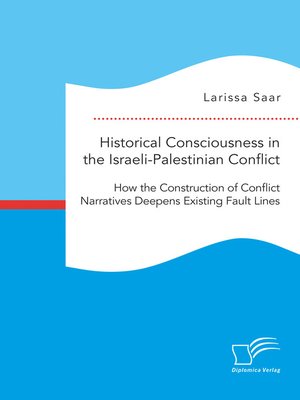Historical Consciousness in the Israeli-Palestinian Conflict
ebook ∣ How the Construction of Conflict Narratives Deepens Existing Fault Lines
By Larissa Saar

Sign up to save your library
With an OverDrive account, you can save your favorite libraries for at-a-glance information about availability. Find out more about OverDrive accounts.
Find this title in Libby, the library reading app by OverDrive.



Search for a digital library with this title
Title found at these libraries:
| Library Name | Distance |
|---|---|
| Loading... |
This study aims to investigate the role of history writing and the development of conflict narratives that emerge out of a particular understanding of history. The Israeli-Palestinian conflict is used as a case study of a context in which the competition for the correct interpretation of history contributes to the intractability of the conflict. An initial investigation into how history is written and subsequently turned into conflict narratives provides a theoretical understanding of the role of narrative in the conflict.
Five key themes are analyzed: narratives of self-determination and nationalism, narratives of religion, narratives of security, narratives of the Nakba and the Shoah and narratives of partition. The analysis shows how these narratives are used to sustain the conflict and deepen the fault lines between the conflict parties, but also how mutual understanding and a possible path towards peace can be forged through narratives.







